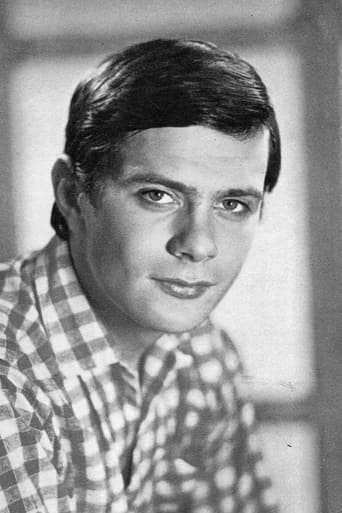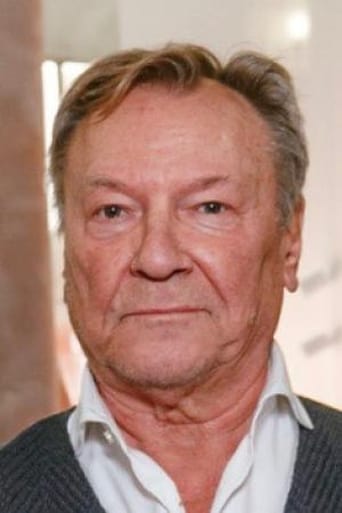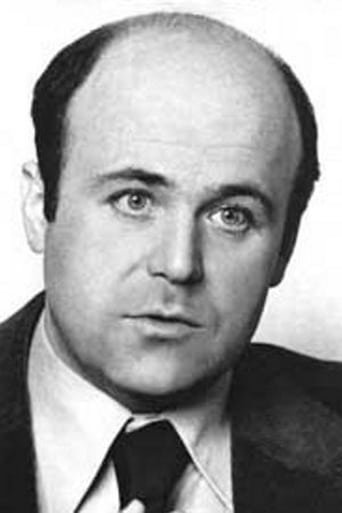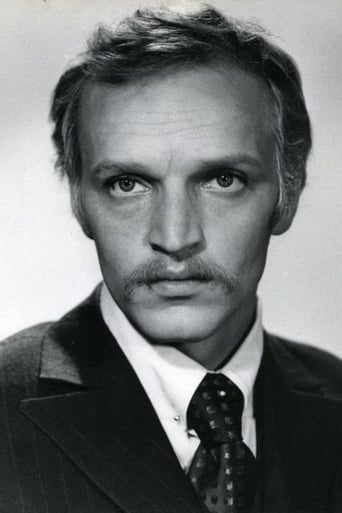Contentar
Best movie of this year hands down!
BoardChiri
Bad Acting and worse Bad Screenplay
Teringer
An Exercise In Nonsense
Chirphymium
It's entirely possible that sending the audience out feeling lousy was intentional
Joe M
At Home Among Strangers, a Stranger Among his Own is a rollicking action and adventure film that nonetheless calls attention to deeply important themes in Russian history. Set directly after the Russian Civil War, the film looks and feels very much like an American Western, embodying motifs of greed, justice, honor, and betrayal. In the film, a shipment of gold being sent to Moscow for the purchase of food supplies is intercepted by a band of train robbers, who are themselves infiltrated by a Red veteran–accused of trying to steal the gold–out to see justice done and clear his name, and by the murderous villain who framed him. Meanwhile, the local Cheka attempts to solve the crime, leading to numerous chases and gunfights. Along with the action and suspense that drive the film's plot, At Home Among Strangers explores the challenges in Russia following the Red victory over the Whites. After the war, an entirely new struggle of rebuilding a divided country begins. The film showcases victorious but overwhelmed reds, defeated but still greedy Whites, and bandits surviving however they can, bearing no political or ideological affiliation. The chairman of the Cheka embodies the struggle of uniting a country made up of such disparate factions; he struggles to do everything that must be done to transition from wartime to socialist peace. Likewise, a former cavalry officer grapples with settling finances, doing his part for peacetime when the battlefield is all he knows. Finally, demonstrating the fundamental divisions within Russian society, the hero Shilov struggles to retain the trust of his fellows, who know that his brother fought for the White army. Stylistically, this "ostern" pays homage not only to the popular American cinema it emulates, but also to previous triumphs of Russian film. A scene in which machine guns are fired from atop cliffs at the water below recalls the final minutes of the Vasilyev Brothers' Chapaev, and some scenes in the movie, like flashes of comrades-in-arms celebrating their victory amid feelings of betrayal, and an image of a wagon tumbling down a hill as the exhausted Shilov makes his way down a similar decline to his waiting comrades, are unmistakable nods to the montage style made famous by Eisenstein and his contemporaries. When the gold is finally returned and old friends regain their mutual trust, shots of the men celebrating the end of the war are interspersed with those of them celebrating the safe return of their valuables. Ironically, their glee over the gold is matched only by the joy they had taken in their victory over such material possessions, and the superimposition serves to remind audiences that now, even amid all their struggles, wealth and camaraderie go hand in hand, and that hard-earned gains are for the benefit of all.
Andrei Pavlov
An easy-going movie that mixes black-and-white cinematography with the colour one and comedy elements with high-power drama. The only thing I feel sorry for in this film is the absence of widescreen. The film would be so much better visually in widescreen.The scenes which represent Brylov's dreaming are quite funny and strange. Brylov's manners are ridiculous and weird too: he looks like a man out of this world, a loony criminal with "refined taste".I cannot compare it to any other movie. It's done in a very unique way (hectic bizarre clipping, grainy picture mixed with fine colour scheme, freaking behaviour of the baddies and goodies, deep adult emotions flavoured by some childish spontaneity all through the film, erratic close-ups of the characters blended into the picturesque shots of wide valleys, etc.). "Beloe solntse pustyni" (1970) was completely different and to say the truth I never liked it much. As to this one, it's the only Nikita Mikhalkov's movie I really enjoy.It's a festival of human emotions without unnecessary scenes (sex, bloody brawls, endless gunfighting) so frequent in action cinema. An action film can be like this: humane, captivating, tough, and emotional. Even a small child can see it and enjoy, learning a lesson or two about life...If only it were in widescreen... Still, 10 out of 10. Thanks for attention.
denis888
There are very few films about this time in Russia - 1917 - 1922, which have no clear propaganda smack. This film, albeit made in the stuffy Soviet times 30 years ago, still sounds and looks so fresh and well. Nikita Mikhalkov managed to create a deeply adventurous and excellently tight atmosphere of a Western, but in a Russian soil. The plot is nice - after the main battles of the war, there are many regions which suffer hunger and famine. The local Soviet committee decided to send some gold to buy bread for those people. The secret group of undefeated former monarchists, so-called The White Gueard, attacks the train with this gold and kills all the people who had it. Thus, the film starts to get more and more thrilling. The main hero, a Comissar Shilov, played by the late lamented Yuri Bogatyrev, is indicted falsely for this assault, he escapes the shooting and starts his own investigation. Slowly, he gets into a gang of mountain bandits who rob the trains and there he comes across one of the White officers, played by also untimely demised Aleksnader Kaydanowski, who has the gold. You really must watch this brilliant film which is full of war romanticism, heroism and true feelings. It has none of the false patriotism or propaganda. Real must have!
imikhaylov
This is a great movie. It reminds me a little bit of "Beloye Solntse Pustini" or in English "The White Sun of the Desert", same type of the 1920's action movie. I think this movie has some of the best cinematography that I have ever seen in any film. This is a very easy going-enjoyable-smart action film. Mikhalkov did a great job.




